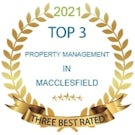Regulation change after regulation change; new tax hikes and hits with every budget; wild regional price variations and fluctuations…There’s so much going on in the now complex world of buy to let, can you as a landlord possibly handle everything yourself? And if you realise that it’s probably not possible anymore, who can you trust to help you make potentially life and wealth-changing decisions?
What you CAN’T do yourself as a landlord
Firstly, there are the obvious things. You can’t do your own legals when buying or selling if you require a mortgage, nor can you create your own Energy Performance Certificate. And when it comes to signing off gas or electrical work and issuing certificates, that can only be done by a qualified expert: gas engineers must be Gas Safe registered and electricians can be NAPIT, ECA or NIEIC registered.
Secondly, there are decisions that the government and other powers that be sometimes take out of our hands. For example, when it comes to choosing mortgage finance, most lenders now make their products exclusively available through mortgage brokers. That means it’s virtually impossible for you to arrange a mortgage yourself if you want to be able to access all the products in the marketplace.
And thirdly, there may be qualifications and accreditation preventing you from carrying out certain aspects of letting and managing property. For example, if you are a landlord in Wales, you can no longer manage a property with a tenant in it unless you have had accredited training. If you haven’t, you will need to use an agent that has – otherwise you can’t let at all.
What you SHOULDN’T do when it comes to buy to let
The biggest problems, in my experience, are the result of people buying a property without having done sufficient research. A lot of people come to me saying they’re not making any money, and that’s usually because the property is in a poor area or, worse still, they didn’t check properly whether the income covered the costs – maintenance being one of the key things that gets underestimated.
Another big mistake that people make is trying to get rid of a troublesome tenant themselves. There is very specific paperwork involved that needs to be administered in a specific order, otherwise it can cause huge time delays or even result in you being unable to evict the tenant. Not only that, but the relationship between you and your tenant will become emotionally charged and can get nasty, so the whole process can become very stressful, time consuming and expensive. So in my view it’s much better to employ a professional expert who has years of experience, right from the start, rather than try to do it yourself and only realise your error six months later when the tenant is still there and you haven’t had any rent!
What is it worth considering getting help for?
In theory, the idea of buy to let is relatively simple. You buy a property that grows in value and rents for more than it costs you to run it, then you keep it going until you pass it to your kids or sell up when it suits.
But the reality is, it’s most certainly not the ‘armchair’ investment some people will have you believe!
Even if you have been a landlord for many years, there have been so many changes to lettings legislation over the last decade that it’s worth taking another look to make sure you and your properties are still fully legally compliant. The Residential Landlords Association (RLA) suggests that there are 145 rules and regulations governing letting a property, while the Association of Residential Letting Agents (ARLA) recently suggested there were 160. Whichever it is, it’s a lot. And not only do you have to know all these rules, you also have to be aware that they might change due to a court case or a legal update, know when changes take effect and understand whether they affect you. A sensible choice is to engage a letting and managing agent who is properly qualified and keeps up with these rules, so you can delegate responsibility and are protected if they make a mistake. If you don’t want to use an agent, you should – as an absolute minimum – join a landlord association or local authority accredited scheme, if one exists in your area.
In particular, if you don’t know what the 29 Housing Health and Safety Rating System (HHSRS) rules are, and what your local authority specifically focuses on during inspections, then you probably need to find a qualified agent, such as Belvoir, to manage your properties. It could save you being heavily fined or even a jail sentence.
You may be used to maintaining properties yourself, but things like fixing the plumbing and making sure carbon monoxide alarms are working may be beyond your skill set, and you might not be comfortable with signing off a property to say it’s clear of risk of ‘legionella’. So do call in experts to help you; just make sure they are properly qualified and don’t be afraid to check their membership of required organisations such as Gas Safe or NAPIT, also checking what warranties and guarantees the work should come with. Don’t forget getting work done for ‘cash’ without proof it was done properly won’t help you if something goes wrong and your tenant is injured.
Do you need help to find and buy a property in the right way?
I am always mindful that many people I meet who sell properties – and even currently let them – aren’t necessarily clued up when it comes to the successes and failures of buy to let. Some of the properties I’ve been shown are full of damp, have stairs that are a trip disaster waiting to happen and clearly won’t be lettable after 2018 due to drafts and poor insulation. But, all too often, the sellers don’t seem to have any idea that these properties are potential death traps that can’t be let legally without having a lot of money spent on them. And if these problems exist in a flat or in communal areas of the flat, that’s bad news because if the freeholder is required to step in and doesn’t, you could be left unable to let a property safely and legally.
The other thing it’s important to know is how much a property is likely to cost you over the next 15-20 years or more of ownership. You need to know what maintenance, repairs and upgrades are likely to be required, so that you can assess your investment properly and budget accordingly. That’s why it’s advisable to take advice from a buy to let professional, such as a surveyor who is part of the Royal Institution of Chartered Surveyors (RICS) or a member of the Residential Property Surveyors Association (RPSA). They can check the condition of the property and advise on things you might need to investigate further, as well as outline future maintenance costs, which may make or break your deal.
Legals, tax and your wealth
Last, but by no means least, have you checked that your investments are tax efficient and structured in the correct legal way to protect you and your family? Before adding one or more properties to your overall ‘wealth’, remember that this could mean you lose benefits or tax concessions, which could ultimately make you worse off. Property investment doesn’t always make sense for everyone, so make sure you seek specialist advice before you plunge in – or right away if you have properties already and haven’t done this yet!
And one final word of warning: beware seminars, workshops and companies that talk about ‘no money down’ or ‘getting rich quick’. Property investment is not to be entered lightly and it does require a fair amount of capital, so you need to understand that anyone making ‘quick & cheap’ promises could either be helping you commit mortgage fraud or using such a risky strategy that you could lose a lot of money by following it.
Whatever you do, there is no harm in taking quality, professional advice, even when it comes at a cost. When you’re investing tens, if not hundreds of thousands, good advice can save you a fortune in the long run, not to mention a lot of stress and hassle.
Belvoir owners are trained on the pros and cons of buy to let and always aim to work with the best brokers, insurers and financial advisors









